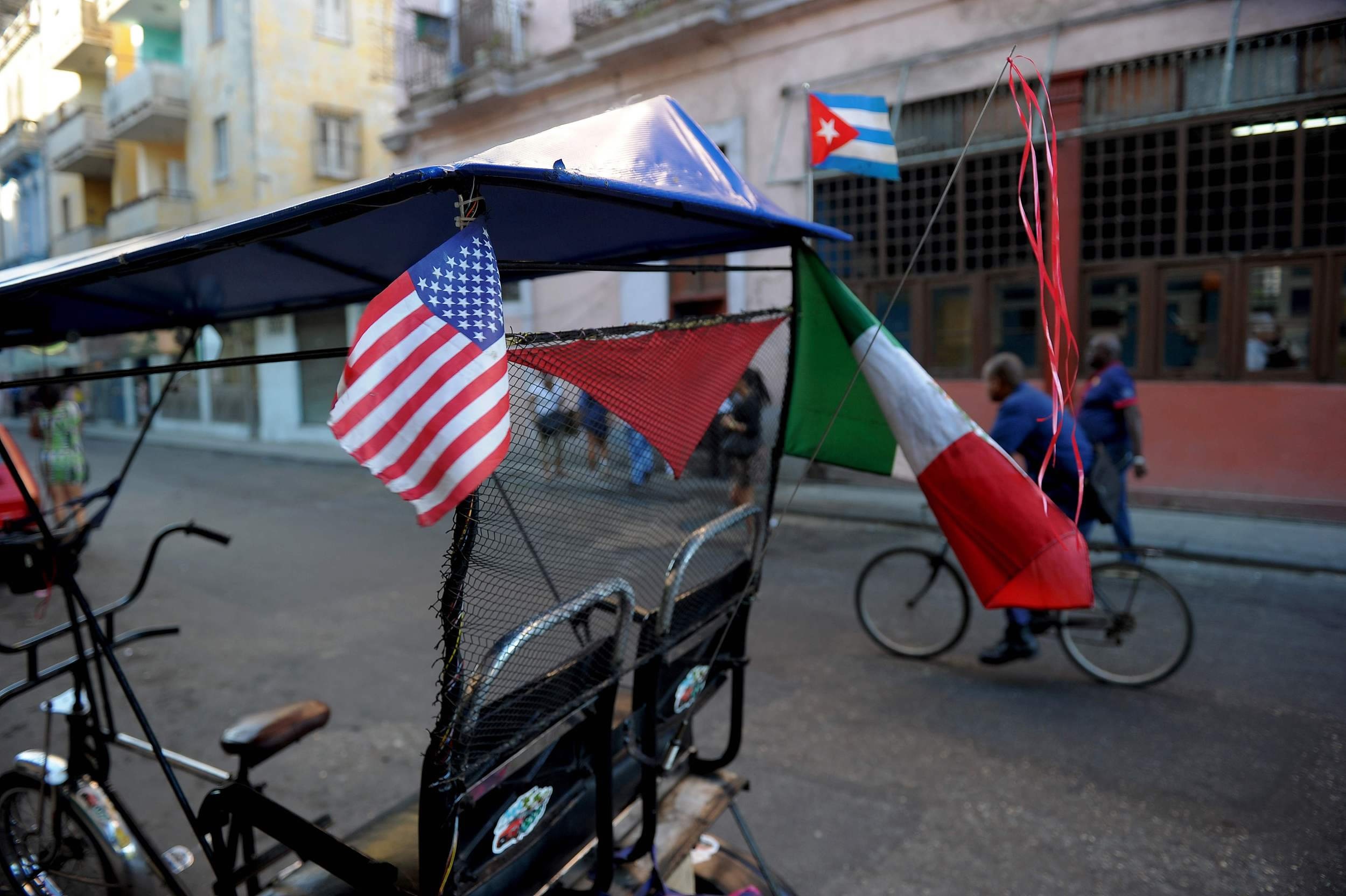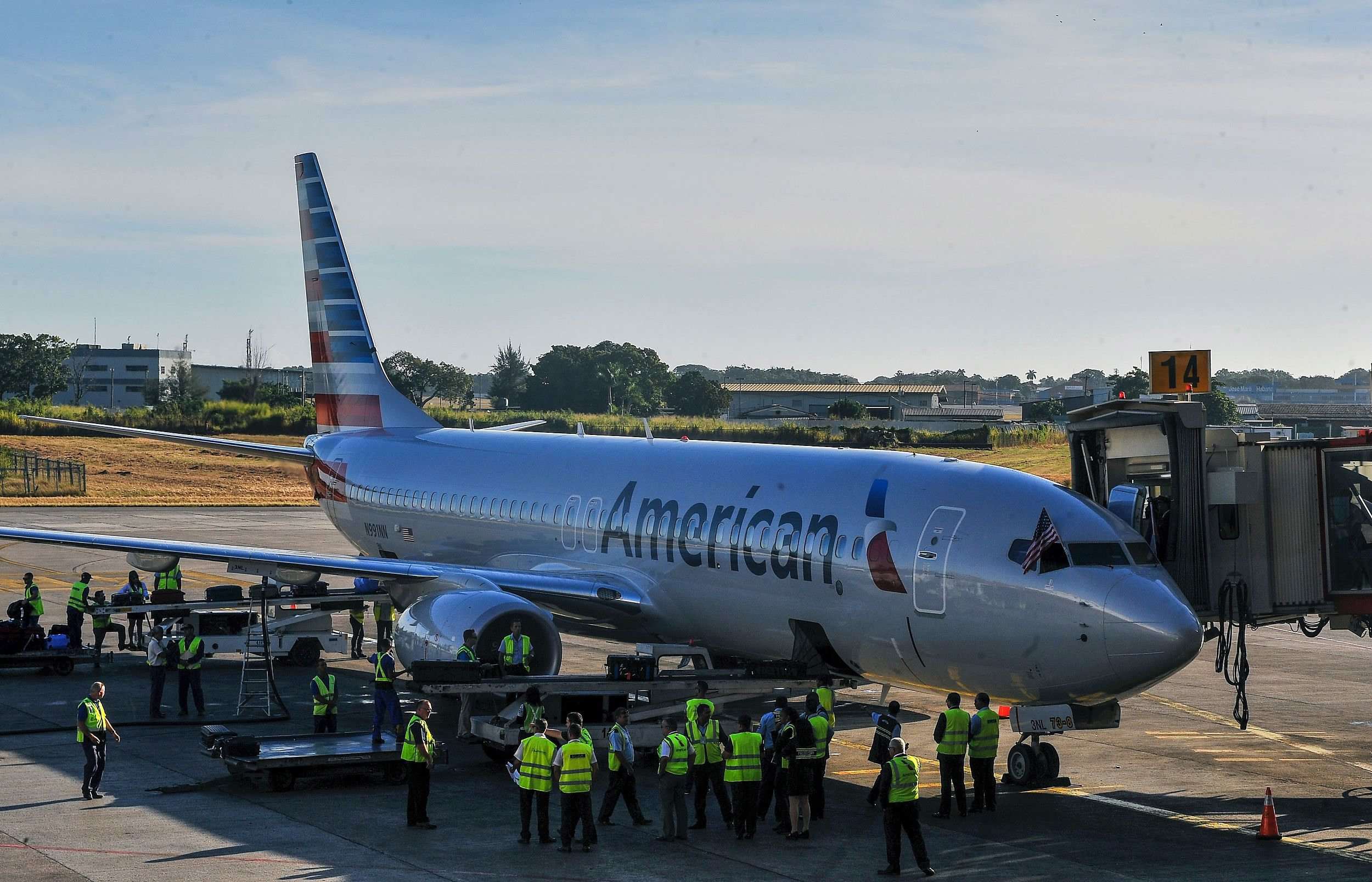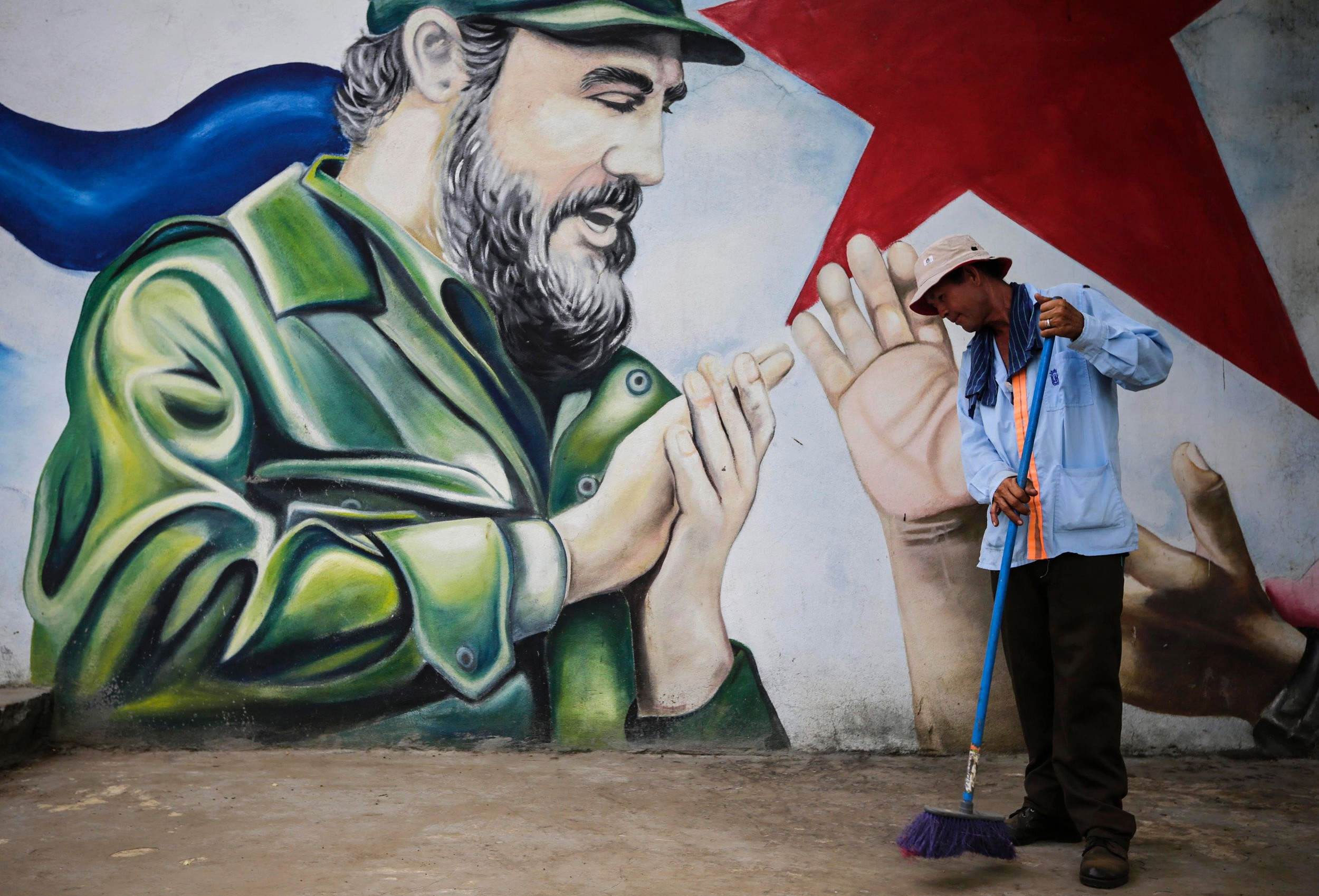US President Donald Trump is set to announce curbs on business with the Cuban military as well as stricter enforcement of rules for Americans traveling to Cuba.
The president will travel to Miami, the heartland of Cuban exiles, for the Central American Security Conference, where he is expected to issue a presidential directive to roll back some of former President Barack Obama's regulations introduced between the two countries.
What will Trump's new policy be about?
The US president promised to take a tougher approach against Havana during the presidential campaign and early reports from Washington indicate Trump is vowing to keep his campaign pledge to anti-Castro hardliners in south Florida.

US President Donald Trump /VCG Photo
US officials said that Trump's new policy will ban US business deals with the Armed Forces Business Enterprises Group (GAESA), a military-backed tourism conglomerate involved in all sectors of the economy.
Trump is also expected to announce stricter enforcement of the rules under which Americans can travel to Cuba.
US officials say there will be tighter enforcement to make sure Americans legally fit the 12 specific categories to be travelling under, ranging from journalism to educational activities, and Cuban Americans will still be able to travel to Cuba and send remittances.
But US officials also told reporters that while Trump wants to improve the "bad deal" Obama left them, much will remain the same.

A "bicitaxi" (pedicab) with the US flag is seen in a street of Havana, on January 19, 2017. /VCG Photo
For example, Trump will not close the newly re-opened US Embassy in Havana and keep the resumption of direct US-Cuba commercial flights. And one official said that Trump's administration does not intend to "disrupt" existing business deals.
Under Trump’s order, the Treasury and Commerce Departments will be given 30 days to begin writing new regulations and they will not take effect until they are complete.
How did Obama normalize ties with Cuba?
After decades of hostilities, the US and Cuba seemed to be turning a corner in relations after then President Obama restored diplomatic ties with Cuba and eased travel and trade restrictions on the country.
Obama resumed direct communications between the two countries, including air connections and postal service in 2015. But he did not end the embargo on Cuba, since only the Congress has that power.
In the same year, the US and Cuba reopened embassies in each other’s capitals for the first time since 1961.
In early 2016, President Obama made another significant effort to normalize relations with Cuba by visiting Havana in what was the first trip to Cuba by a sitting US president since 1928.

Then US President Barack Obama and Cuban President Raul Castro shake hands at a joint press conference at the Cuban State Council, on March 21, 2016 in Havana, Cuba. /VCG Photo
Later that year, commercial US airlines began offering service between the two for the first time in more than fifty years.

An American Airlines plane arrives at Jose Marti International Airport becoming the first Miami-Havana commercial flight in 50 years, on November 28, 2016 in Havana. /VCG Photo
American businesses, including airlines, cruise lines, and telecommunications companies, earned 26 agreements with the Cuban government from 2015 to 2017, including cooperation in law enforcement and information sharing, noticeably in the battle against drugs, human-trafficking, cyber-security and marine life conservation, but some of them may now be in jeopardy.
Likely impact of Trump's policy move on relations
Mario Torrico, a research professor at the Latin American Faculty of Social Sciences (Flacso) in Mexico City, noted that US ties with Cuba under Trump are bound to slide back.
"They will not be able to negotiate anything, because while one side, the US, is interested in seeing progress in greater political opening towards democratization, the other side, Cuba, wants non-intervention and the reduction of economic restrictions ... to lift the embargo," said Torrico to Xinhua News Agency,
"I think neither side is willing to accept these conditions," he added.

A municipal worker sweeps the floor in front of a mural depicting Cuban revolutionary leader Fidel Castro at Cuba square in Managua on November 26, 2016. /VCG Photo
One former Cuban diplomat said that while the economic embargo against Cuba was never lifted during the Obama administration, there has been progress. But Trump might slow the pace.
"I think with Trump there will certainly be stagnation, maybe reversal and the best one can hope for is a slower pace," said Carlos Alzugaray, a former Cuban diplomat.
One study by the coalition Engage Cuba believes Trump's new Cuba policy could cost the US as much as 6.5 billion US dollars and cut nearly 12 thousand jobs over the next few years.
Cubans disheartened at Trump rolling back détente
Cubans said they felt crestfallen to be returning to an era of frostier relations with the US as news report that Trump is to roll back some historic détente with Cuba, said Reuters.
"It hurts to be going backwards. To roll back the engagement will only manage to isolate us from the world," said Havana resident Marta Deus, who will try to follow Trump's speech in Miami.









